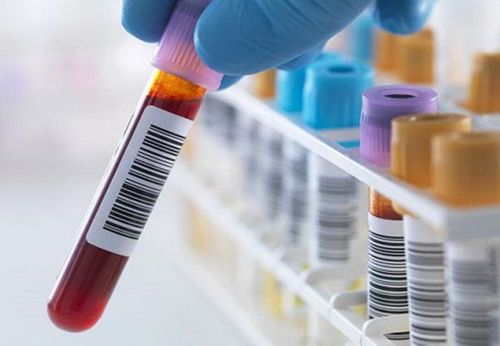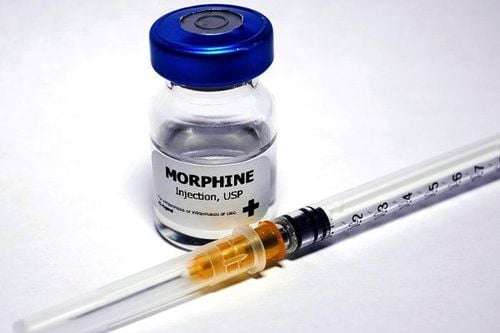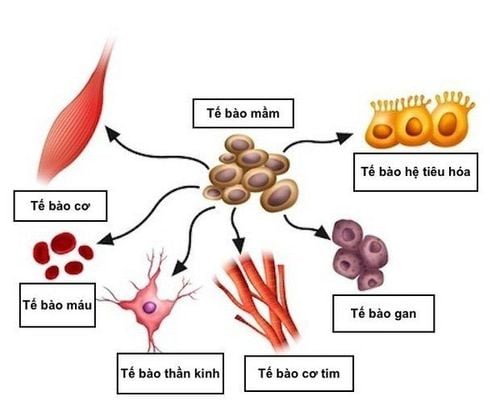This is an automatically translated article.
Germ cell tumors in children, when detected early, will have high treatment results and need to be diagnosed by highly qualified and experienced doctors. The main treatments for germ cell tumors are surgery or chemotherapy.
1. Diagnosis of germ cell tumors in children
To diagnose germ cell tumors, patients need to perform many different tests as prescribed by the doctor. The test results will also show the condition and extent of the tumor metastasis.

Có thể chẩn đoán khối u tế bào mầm bằng xét nghiệm
1.1 Diagnostic factors for germ cell tumors in children Tumor type Tumor symptoms Age of the child General health of the child Tests performed and results 1.2 Diagnostic methods for germ cell tumors In children Based on the above considerations, after a clinical examination, the doctor will choose a test method to diagnose germ cell tumors, including:
Biopsy: This is the method that gives the most accurate results. This helps the doctor determine if a germ cell tumor is a malignant tumor or a benign tumor. If a biopsy cannot be performed on the patient, the doctor will recommend an alternative type of test that can provide a correct diagnosis. Blood test: Two indicators are AFP (Alpha Fetoprotein) and Beta HCG. If a pregnant woman suspects the presence of a germ cell tumor in the fetus, the test will show an elevation of these two indicators. Ultrasound: A technique to show where the tumor exists in the body. CT (or CAT) scan: This test shows how big the tumor is and how far it has spread. MRI scan: This also shows the size and extent of the tumor's spread.
2. Treatment of germ cell tumors in children
Based on the diagnostic results to evaluate the type of tumor as well as the advanced stage of the disease, the doctors will decide on the treatment method for germ cell tumor in accordance with the patient's health condition.
2.1 Germ cell tumor treatments Surgery: Surgical treatments for germ cell tumors can help remove the tumor completely and its margins. Chemotherapy: This method uses drugs to inhibit the division and growth of tumor cells, aiming to kill cells. Drugs indicated for the treatment of germ cell tumors include bleomycin, cisplatin, and etoposide. Chemotherapy can cause some side effects such as hair loss, fatigue, loss of appetite, vomiting, diarrhea, increased risk of infection. Therefore, patients with germ cell tumors require special care. Usually, when the chemotherapy is over, these side effects will also go away.

Quá trình hóa trị liệu có thể gây tác dụng phụ khiến trẻ mệt mỏi
2.2 Taking care of children after treatment of germ cell tumors Cancer and cancer treatment in general, germ cell tumors in particular often cause side effects. In addition to treatment with surgical removal or chemotherapy to destroy and stop the growth of the tumor, special care is needed to help manage the symptoms and side effects of the tumor and to prevent it from growing. the treatment of the tumor caused.
During the treatment of patients with germ cell tumors, especially those at high risk, care should be taken early to help provide a high treatment outcome and less severe symptoms. important. Usually, patients will be treated at the same time as the tumor and care for and treat side effects.
2.3 Treatment goes into remission but what if germ cell tumor recurs? Treatment can lead to permanent or temporary remission of a germ cell tumor. However, recurrent tumors may recur at the original site or in the vicinity, or may be in other, more distant parts of the body.
With cases of recurrence, the patient will have to repeat the tests from the beginning to be able to assess the current health and stage of the tumor. Based on the results, your doctor will decide on the appropriate treatment, including surgery or chemotherapy, but may change the type of drug to treat recurrent tumors with a different treatment frequency. In addition, the doctor will also consider other methods such as radiation therapy or a bone marrow or stem cell transplant.
Most germ cell tumors have a relatively good treatment outcome, however, if the treatment is not effective, there is no cure, it may be because the disease has progressed to the late stage. , with a prognosis of no more than 6 months of survival. At this point, the patient receives intensive care at home or in a treatment facility.
If you have unusual symptoms, you should be examined and consulted with a specialist.
Please dial HOTLINE for more information or register for an appointment HERE. Download MyVinmec app to make appointments faster and to manage your bookings easily.
MORE:
Normal and abnormal values of cancer marker CA 72-4 Can blood tests detect cancer? What cancer screening packages does Vinmec have?













